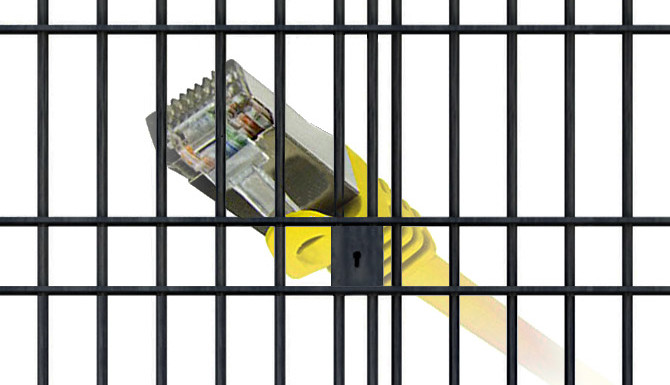14th December 2017: The day internet neutrality died
December 04, 2017
on
on

The 14th December 2017 is likely to go down in history as the day internet neutrality was abolished. On this day, the commission of the American FCC will vote on a proposal to lift the Open Internet Order put in place in 2015 by the previous administration.
The FCC Commission is currently staffed by three Republicans and two Democrats so it can be assumed that they will toe the party line and the proposal will be approved. From then on there will be no major political obstacles to hinder its progress, and after passing through the legislative chambers, the ironically titled ‘Restoring Internet Freedom Act’ will then become law next spring. That is unless a federal court blocks the case, but the chances of that happening are pretty slim.
So, what’s at stake? The rules governing net neutrality implemented during the Obama administration are likely to be repealed. These are in place to ensure ISPs treat all internet traffic equally, currently ISPs aren't allowed to impede or slow down lawful Internet traffic and also aren’t allowed to accept any payment in exchange for prioritizing any online service in the link it provides to the home user’s computer or mobile device. The vast majority of comments relating to the existing net neutrality rules introduced in 2015 are broadly in support of the regulations as they stand.
The likely consequences: The internet will become opaque. Big internet companies will have the funds to strike deals with ISPs guaranteeing that their own services and content will be given priority while smaller businesses and startups will face additional hurdles to get their message across. You can also expect increased forms of data surveillance, we have already witnessed, prior to 2015, a major global telecommunications conglomerate being caught using so-called ‘deep packet inspection’ to identify and block certain types of peer-to-peer file transfers in order to favor their own content. It is likely that this new proposal by the FCC will give ISPs the green light to continue these practices.
As well as the title of the bill being ironic, it is also reminiscent of the language used by the Ministry of Truth in George Orwell's 1984: There is talk of ‘liberating’ the Internet and that these new proposals will eliminate ‘unfair’ regulations. ISPs will without doubt enjoy more freedom if net neutrality rules are rescinded. Many of the major ISPs have of course welcomed the proposal but if their past behavior is anything to go by, the proposed changes will really only benefit ISP shareholders at the expense of everyone else who uses the web.
The exact wording of the Restoring Internet Freedom Act can be read in this PDF file.
The FCC Commission is currently staffed by three Republicans and two Democrats so it can be assumed that they will toe the party line and the proposal will be approved. From then on there will be no major political obstacles to hinder its progress, and after passing through the legislative chambers, the ironically titled ‘Restoring Internet Freedom Act’ will then become law next spring. That is unless a federal court blocks the case, but the chances of that happening are pretty slim.
So, what’s at stake? The rules governing net neutrality implemented during the Obama administration are likely to be repealed. These are in place to ensure ISPs treat all internet traffic equally, currently ISPs aren't allowed to impede or slow down lawful Internet traffic and also aren’t allowed to accept any payment in exchange for prioritizing any online service in the link it provides to the home user’s computer or mobile device. The vast majority of comments relating to the existing net neutrality rules introduced in 2015 are broadly in support of the regulations as they stand.
The likely consequences: The internet will become opaque. Big internet companies will have the funds to strike deals with ISPs guaranteeing that their own services and content will be given priority while smaller businesses and startups will face additional hurdles to get their message across. You can also expect increased forms of data surveillance, we have already witnessed, prior to 2015, a major global telecommunications conglomerate being caught using so-called ‘deep packet inspection’ to identify and block certain types of peer-to-peer file transfers in order to favor their own content. It is likely that this new proposal by the FCC will give ISPs the green light to continue these practices.
As well as the title of the bill being ironic, it is also reminiscent of the language used by the Ministry of Truth in George Orwell's 1984: There is talk of ‘liberating’ the Internet and that these new proposals will eliminate ‘unfair’ regulations. ISPs will without doubt enjoy more freedom if net neutrality rules are rescinded. Many of the major ISPs have of course welcomed the proposal but if their past behavior is anything to go by, the proposed changes will really only benefit ISP shareholders at the expense of everyone else who uses the web.
The exact wording of the Restoring Internet Freedom Act can be read in this PDF file.
Read full article
Hide full article


Discussion (17 comments)